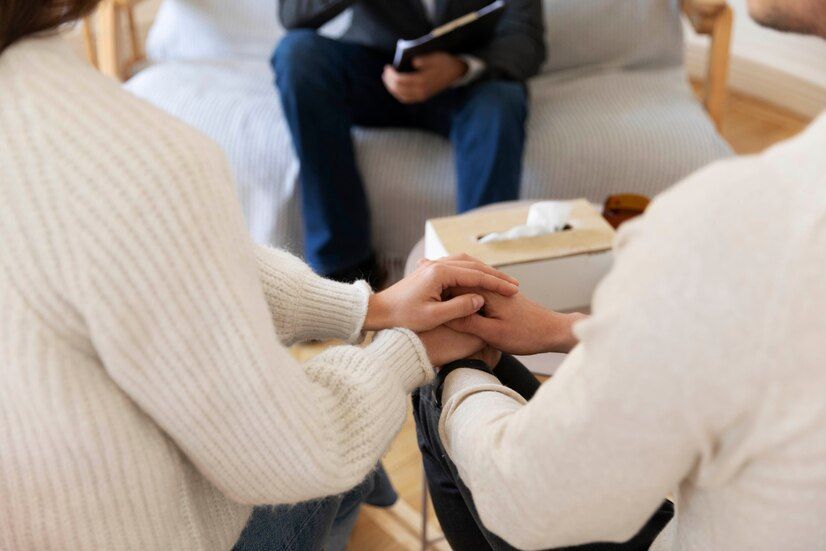10 Signs You May Have a Physical Abuse Problem and Why Therapy Could Be the Answer
Physical abuse is a serious and pervasive issue that can have profound and lasting effects on both the victim and the perpetrator. Recognizing the signs that you may have a problem with physical abuse is the first step toward making meaningful changes and seeking help. Here are ten reasons you may have a physical abuse problem and why professional therapy or counseling is essential.
1. Frequent Outbursts of Anger
If you often find yourself losing control and reacting with physical aggression, such as hitting, slapping, or shoving, it’s a strong indicator that you may have a physical abuse problem. Therapy can help you learn to manage your anger and find healthier ways to express your emotions.
2. History of Violent Behavior
A pattern of violent behavior in your past, whether in relationships, at work, or in social settings, suggests that physical abuse is an ongoing issue. Counseling can help you understand the root causes of your violent tendencies and develop strategies to change your behavior.
3. Blaming Others for Your Actions
If you tend to blame others for provoking you or making you act violently, it’s a sign that you might be rationalizing your abusive behavior. Therapy can help you take responsibility for your actions and learn how to respond to situations without resorting to violence.
4. Fear or Intimidation from Others
When people around you seem afraid or act submissively, it could be because they fear your physical reactions. This atmosphere of intimidation is harmful and unsustainable. A therapist can help you build more respectful and supportive relationships.
5. Feeling Remorse After Violent Episodes
Experiencing regret or guilt after acting violently is a clear sign that you know your behavior is wrong. While remorse is a step toward change, therapy can provide the tools and support needed to prevent future violent episodes.
6. Use of Alcohol or Drugs
Substance abuse often accompanies physical abuse, as it can lower inhibitions and escalate violent behavior. If you rely on alcohol or drugs and find that they contribute to your violent actions, seeking counseling can help you address both issues simultaneously.
7. Jealousy and Control Issues
Extreme jealousy and a need to control others can lead to physical abuse as a means of exerting power. Therapy can help you understand and manage these feelings, promoting healthier, more equitable relationships.
8. Childhood Exposure to Violence
If you grew up in a household where physical abuse was common, you might be more prone to replicating this behavior. Understanding the impact of your upbringing through therapy can help break the cycle of abuse.
9. Isolation and Withholding Support
Physically abusive individuals often isolate their victims, cutting them off from friends, family, and support systems. If you find yourself engaging in such controlling behavior, it’s crucial to seek help to change these patterns and foster healthier interactions.
10. Legal Troubles
Involvement with law enforcement due to violent incidents is a clear sign that your behavior is out of control. Seeking therapy can help you address the underlying issues and prevent further legal consequences.
Why You Should Consider Therapy
Recognizing these signs is the first step toward addressing your physical abuse problem. Therapy or counseling offers a safe and supportive environment to explore the underlying causes of your behavior and develop effective strategies for change. Here’s how therapy can help:
- Understand the Root Causes: Therapists can help you explore the underlying issues that contribute to your violent behavior, such as unresolved trauma, anger management problems, or substance abuse.
- Develop Healthy Coping Mechanisms: You’ll learn various techniques to manage your emotions and responses, such as relaxation exercises, mindfulness, and cognitive-behavioral strategies.
- Improve Communication Skills: Therapy can teach you how to express your feelings and needs without resorting to violence, improving your relationships and interactions.
- Foster Empathy and Respect: Counseling can help you develop greater empathy for others and learn to treat people with respect and kindness, fostering healthier and more positive relationships.
- Prevent Recurrence: By addressing the root causes and developing better coping mechanisms, therapy can help prevent future episodes of violence, leading to a safer and more stable life for you and those around you.
Seeking help is not a sign of weakness but a courageous step toward a healthier, more fulfilling life. If you recognize yourself in any of these signs, consider reaching out to a professional therapist or counselor. Addressing your physical abuse problem can lead to profound improvements in your mental, emotional, and social well-being, paving the way for a more peaceful and balanced life.
CATEGORIES
We Work Together to Solve Current Challenges
CONTACT US
1-571-330-2829
office@ariseccc.com
10801 Johnston Road
Suite 210 Charlotte NC
28226-4558
USEFUL LINKS
STAY INFORMED
You need a helping hand with your project?
We will get back to you as soon as possible
Please try again later
COUNSELING CENTER HICKORY & CHARLOTTE NORTH CAROLINA










